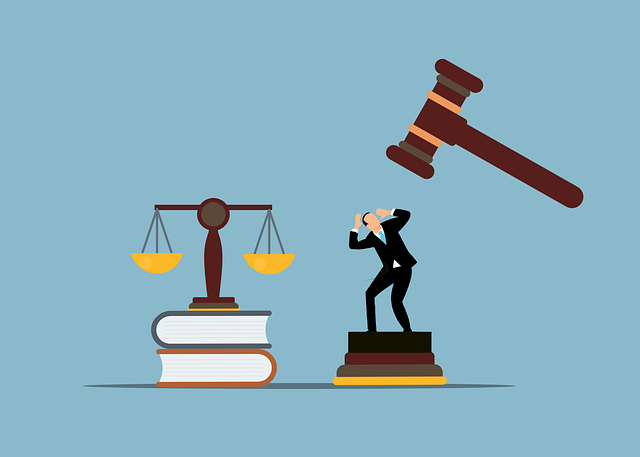If you’re being accused of a crime you didn’t commit, the immediate steps you take are crucial. This guide cuts straight to the important actions that can help you defend yourself effectively. You’ll learn how to deal with and answer the accusation head-on, safeguard your rights, and move forward with the right legal strategy.
Key Takeaways
- Securing a competent criminal defense attorney at Levitt Legal, exercising the right to remain silent, and thoroughly documenting all related interactions and evidence are immediate critical steps when faced with a false accusation.
- The legal process initiated by false accusations includes a first appearance, possibly a grand jury indictment for felonies, and a trial phase, highlighting the importance of understanding procedural rules and the roles of prosecutors and grand juries.
- Establishing a robust defense strategy against false accusations involves gathering physical and digital evidence, presenting an alibi, identifying corroborating witnesses, and possibly employing expert testimony to raise reasonable doubt.
Immediate Steps to Take Following an Accusation
A false accusation can plunge anyone into a whirlwind of panic and confusion. However, your initial response to the allegation can significantly influence the course of the entire legal process. Resisting arrest, for instance, can lead to additional charges and complicate your legal situation. Moreover, aggressive reactions may be detrimental to your credibility and can be used against you in legal proceedings.
Amidst this chaos, reaching out to contact a seasoned criminal defense attorney for a free consultation is of paramount importance. The experts at Levitt Legal, with their specialization in defending the accused, can offer invaluable guidance during this challenging period, especially when there’s an attorney present during questioning. Seeking legal counsel can make a significant difference in the outcome of your case.
Contact an Experienced Criminal Defense Attorney
An experienced criminal defense lawyer at Levitt Legal can help you navigate the complexities of the criminal justice system in Salt Lake City, Utah, from understanding the law and procedural rules to developing defense strategies and challenging witness testimonies.
Although the legal process of facing criminal charges might seem overwhelming, the right legal representation can significantly alter your experience. From the moment you’re accused of a crime, your attorney is there to protect your rights, advocate for your interests, and fight to prove your innocence.
Exercise Your Right to Remain Silent
Though defending oneself is an instinct when accused, it’s crucial to keep in mind your right to silence. This right can help you prevent any risk of self-incrimination, especially before securing legal representation.
Remember, anything you say can be used against you in court. Hence, it’s often best to speak only in the presence of your attorney. This ensures your words aren’t misconstrued or used to build a case against you.
Document Everything
Amidst false accusations, meticulously documenting everything related to the accusation, from a broad overview to specific observations, can bolster your defense. This includes noting each entry with the time, date, and case reference, and ensuring no blank spaces are left between entries.
From interactions with the accuser to evidence of your whereabouts during the alleged incident, everything should be meticulously documented. Remember, your goal is to establish a clear, accurate, and consistent narrative that supports your innocence.

Understanding the Legal Process You’re Facing
False accusations can thrust you into a complex legal process, often beginning with a first appearance where you’re informed of the charges and advised of your legal rights. In felony cases, a preliminary hearing follows to evaluate if there’s sufficient probable cause to believe you committed the crime. This stage can lead to either a trial or dismissal, depending on what the hearing reveals, and it’s crucial to remember that one is not considered “proven guilty” until the legal process reaches its conclusion.
The trial phase encompasses various steps, from jury selection to evidence presentation and the delivery of the verdict. If the trial results in a conviction, sentencing follows, typically occurring between two to 45 days afterward. This intricate process highlights the need for a proficient defense attorney who can navigate you through each step.
How Police File Criminal Charges
The process of filing criminal charges begins with a complaint that includes a summary of the facts, elements of the offense, and details like the date, location, and names of those involved. A prosecutor writes an information or complaint document, which initiates the criminal trial process.
During the first appearance, you’re formally notified of the charges, and for misdemeanors, you’re arraigned, while felony cases have a date set for a preliminary hearing. Grasping these steps is key to navigating the legal system effectively and preparing a robust defense.
The Role of the Prosecutor and Grand Jury
The role of the prosecutor and the grand jury is pivotal in the legal process. While the prosecutor can initiate misdemeanor charges through an information or complaint, felony charges typically require an indictment by a judge or a grand jury unless this right is waived by the defendant.
During grand jury proceedings, the prosecutor presents evidence and may call witnesses. If the grand jury finds probable cause, it will return an indictment, leading to the commencement of the formal criminal trial process. Understanding these roles and processes can help you better prepare for what lies ahead.

Building a Strong Defense Against False Accusations
Constructing a solid defense against false accusations requires a multitude of strategies. Expert witnesses can testify about the evidence or refute the accuser’s claims, strengthening your defense. Additionally, challenging the credibility of the accuser by uncovering motives or inconsistencies in their story can also be instrumental in your defense strategy.
Another crucial element in building a strong defense is presenting an alibi and securing witnesses who can corroborate your innocence. The combined force of these strategies can create a compelling case in your favor, raising reasonable doubt in the minds of the jurors.
Collecting Evidence to Prove Innocence
The collection and preservation of physical evidence like clothing, objects, or documents is crucial for supporting an alibi or refuting an accusation. Digital evidence, including emails, GPS data, and social media posts, can also be invaluable in providing crucial information about the person and your location at the time of the alleged crime.
Medical records or even undergoing a physical examination may offer evidence that challenges the accusations, particularly in cases involving alleged physical harm. Throughout this process, maintaining a documented chain of custody ensures that the evidence collected remains admissible in court.
Identifying Witnesses Who Can Corroborate Your Story
One of the most effective ways to strengthen your defense is to identify witnesses who can testify under oath to your innocence or provide details that challenge the accuser’s version of events. These witnesses could be:
- People who can attest to your character
- People who can confirm your whereabouts at the time of the alleged incident
- People who can provide information that directly contradicts the accuser’s claims
Managing Life While Accused
Being falsely accused can be a daunting ordeal that reaches far beyond the courtroom’s confines. Maintaining employment during this time is crucial, as it helps to prepare for financial strain, including unexpected legal fees and potential income loss.
Furthermore, it’s vital to address immediate concerns like family obligations and remain calm. Planning for contingencies, such as arranging care for children or dependent family members in case of arrest, can help you better manage this challenging time.
Dealing with Emotional Stress
The emotional toll of being falsely accused can be immense. High levels of anger, anxiety, depression, guilt, and even the potential development of PTSD are common reactions. Persistent negative emotions and avoidance behavior stemming from PTSD can severely impact self-esteem, and relationships, and lead to social isolation.
Therapy can be a helpful tool in managing these emotional stresses. Individual therapy can help process the trauma, rebuild self-esteem, and develop coping mechanisms. Additionally, online group therapy provides an accessible platform for collective healing and anonymity.
Handling Work and Social Interactions
Under the strain of false accusations, maintaining professionalism at work and understanding relevant legal rights and company policies can be beneficial. Remember, your conduct in the workplace can have a lasting impact on your reputation and professional relationships, even after the resolution of the legal proceedings.
When addressing concerns with HR, focus on the possible effects on the work environment rather than personal sentiments. This approach maintains a clear boundary between personal and professional matters, helping you navigate workplace challenges more effectively.
Summary
Facing false accusations is a daunting experience, but understanding the legal process and your rights can make a significant difference. From the immediate steps to take following an accusation, to navigating the legal system, building a strong defense, and managing life while accused each step requires careful consideration and preparation. Remember, you don’t have to face this alone – an experienced criminal defense attorney can be a valuable ally in proving your innocence and restoring your reputation. If you’re facing false accusations in Salt Lake City, Utah, contact Levitt Legal today to defend yourself!
Frequently Asked Questions
Can you sue someone for falsely accusing you of a crime?
Yes, you can sue someone for falsely accusing you of a crime if the accusations resulted in criminal charges or a civil lawsuit against you and the case was resolved in your favor. If the false accusations also damaged your reputation, you may be able to sue for defamation.
How can I prove my innocence when falsely accused?
You can prove your innocence by gathering evidence such as phone records, text messages, witness statements, photos, or video footage. It’s also helpful to start a journal with a detailed account of the events and interactions with the accuser or the police.
How to respond when someone accuses you of something you didn’t do?
Stay calm and gather enough evidence to challenge the accuser’s credibility. It might also help to find witnesses and develop a strategy to defend yourself.
Why is it important to remain silent when accused of a crime?
Remaining silent when accused and found guilty of a crime is important because it prevents self-incrimination before you have legal representation.
How can I manage the emotional stress of being falsely accused?
Consider seeking therapy or joining a support group to process the trauma, rebuild self-esteem, and develop coping mechanisms to manage the emotional stress of being falsely or wrongfully accused. This can provide a safe space for healing.
